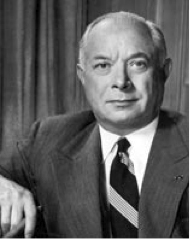Last night I saw the movie "The Social Network" for the first time. It is the story of Mark Zuckerberg and how he "stole" the idea for Facebook from three Harvard students and went on to create a multi-billion dollar company. While watching the film, it reminded me of Tim Wu's book The Master Switch. In it, Wu states that "the inventor gets the experience, and the capitalist gets the invention." He provides numerous examples of someone coming up with a revolutionary idea, only for it to be stolen or bought by a big company. One example would be the invention of the television. When it was invented, the FCC banned its use until 11 years later when David Sarnoff re-created the television and claimed its invention as his own. I doubt many people know that such an event occurred, such as I doubt before the release of "The Social Network" that anyone knew that Mark Zuckerberg stole the basic idea for Facebook. Everyone wants to be the person who comes up with the next great thing. For Sarnoff, he saw the power of television and waited to release it during the most opportune moment for himself and RCA. Zuckerberg saw how life changing a social network between college students could be. I doubt either one had any idea how mainstream their "ideas" would become.
Wu also makes the claim that the potential for innovation falls to others. The inventor is only one person, while there are millions of others who see new uses and advances that may have been right under the inventor's nose. It is impossible to think that David Sarnoff could have thought that the television would now have high defintion or recorded shows (DVR) or even that single households would have multiple TVs. Mark Zuckerberg created Facebook as a way to connect college students (today it connects everyone), but as we see in the film it is other that think of ideas that are the foundation of what the site is today. For example, a friend asks him if he knows whether or not some girl is single. Mark immediately runs back to his room where he installs a relationship status and an "interested in..." option to members' pages. It is amazing to see how a relatively small idea with basic purposes can expand into something enormous with hundreds of new uses never dreamed of before.


This seems to be an excellent connection to Wu's assertion that "the inventor gets the experience, and the capitalist gets the invention." The difference that I see in the case of Facebook is that Mark Zuckerburg's "stealing" of the Facebook idea worked to expedite its implementation, while David Sarnoff's "stealing" of the television idea inhibited it's development for eleven years. Sarnoff's motive: to prevent what he perceived as a disruptive technology from robbing him of his industry. Zuckerburg's: The desire to become wealthy and to create an industry and empire. I think this is a great outside connection that Wu does not mention (at least in parts 1-4).
ReplyDeleteI really like the connection that you drew between The Master Switch and The Social Network. You make a very true statement that we all want to come up with the new big thing. It is shocking how many people are willing to "steal" ideas and claim them as their own in today's society as well as in the past.
ReplyDeleteExcellent connection between Sarnoff and Zuckerberg, in terms of how they take credit for others' inventions. Jeff also makes a good point about how the two men differ.
ReplyDeleteMany of us associate Steve Jobs, not Steve Wozniak, with Apple. Those around personal computers since the mid 80s recall that Steve Jobs never wrote much code and certainly did not do much hardware hacking..."Woz" made the Apple II possible, and from that income came Apple Computer and, eventually, the Mac line of computers we have today (not to mention that reverse-engineered version of the Mac OS from some company called Microsoft). That said, Bill Gates not only wrote code, but in the early days he reviewed every line of Windows code, personally.